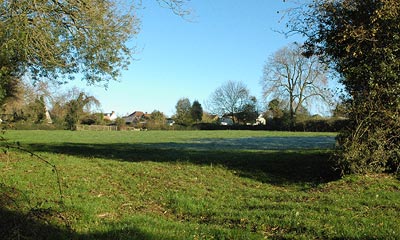Councils 'eating into green belt'
Many councils are needlessly building new homes on greenfield land, rural campaigners say.
The Campaign to Protect Rural England criticised 13 councils for building less than a third of new homes on previously developed brownfield land.
These include Milton Keynes, Harlow and Corby, which was labelled "England's worst recycler".
Corby Borough Council dismissed the report as misleading due to an anomaly in the government's classification.
The council said most of the new homes in the area were being built in two former quarries which were not classified as brownfield.
Chris Mallender, the council's chief executive, said: "What we're doing with local support is building new housing where these limestone quarries stood in preference to building on amenity green space or very valuable ancient woodland in the centre of Corby."

But Nick Schoon from the CPRE told the BBC the categorisation of quarries should not be changed.
He said: "The fact is if every quarry in the country was considered a brownfield site - a lot of these quarries are in very rural areas, a lot of them in national parks - and if these were legitimate sites to build new homes on we'd have a pretty changed countryside and a real problem on our hands I think."
Residential gardens also qualify as brownfield sites and some councils admit they been used for development when land is limited.
'Land recycling heroes'
The CRPE also identified 15 councils, like Brentwood and Watford, which achieved a land recycling level of at least 95% between 2001 and 2004.
This means that less than one new home in every 20 was built on a greenfield site, land which has never been developed.
During 2001-2004, all homes built in Watford were on brownfield land.
Chris Pagdin, Watford Borough Council's head of planning and development, said: "We are very much an urban borough which means there isn't much green land to use.
"Nevertheless we work hard, in partnership with developers, to ensure that brownfield land is used as fully as possible to meet our housing requirements."
Although most councils improved the amount of land they recycled between 1997-2000 and 2001-2004, 11 were able to more than double their performance.
Worcester improved the most during this time, increasing the amount of recycled land from 25% to 92%.
Henry Oliver, the CPRE's head of planning and local government, said: "We're delighted that there has been such strong progress across the country by council planners and developers in raising the level of land recycling and getting away from wastefully low densities for new housing.
"These improvements have saved thousands of acres of countryside from being built on each year - even though the number of new homes being built has been growing."
header two
p
p
bbc.co.uk, 09.08.2006
